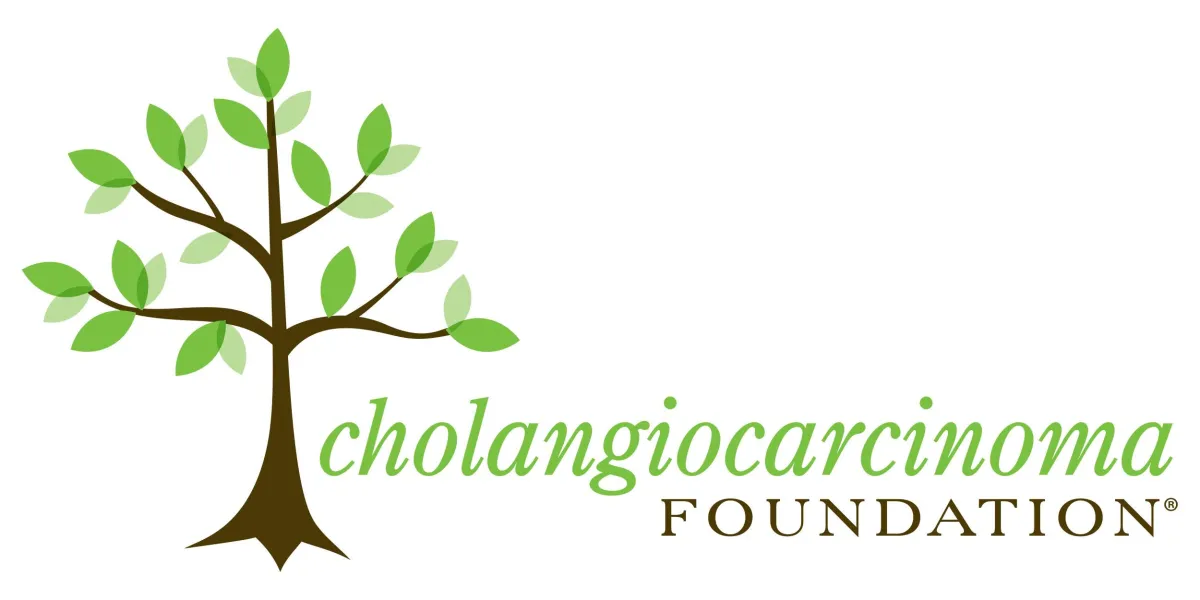Cholangiocarcinoma
What is Cholangiocarcinoma (Bile Duct Cancer)?
Cholangiocarcinoma, a rare and deadly cancer, originates in the bile duct, a tube that transports bile from the liver to the small intestine. The bile duct system consists of intrahepatic bile ducts within the liver, which merge into the common hepatic duct and combine with the cystic duct from the gallbladder to form the common bile duct. This duct passes through the pancreas and empties into the duodenum. Categorized into three types based on location, cholangiocarcinoma can occur in the intrahepatic, perihilar, or distal areas of the bile duct, each presenting distinct symptoms.
Key Statistics
Around 8,000 cholangiocarcinoma cases are reported annually in the United States.
Cholangiocarcinoma is more prevalent in Asia and the Middle East due to a parasitic infection in the bile duct.
The majority of cholangiocarcinoma cases, about 2 out of 3, are diagnosed in individuals aged 65 or older.
The average age for cancer of the intrahepatic bile ducts diagnosis is 70.
The average age for cancer of the extrahepatic bile ducts (perihilar or distal cholangiocarcinoma) diagnosis is 72.
The survival rate for bile duct cancer greatly depends on the cancer's location and stage at the time of diagnosis.
Symptoms
Chills
Clay-colored stools
Dark urine
Fever
Itching (pruritus)
Loss of appetite
Nausea
Paine in the upper right abdomen that may radiate to the back
Weight Loss
Yellowing of the skin (jaundice)
Risk Factors
Diseases in the liver or bile ducts
Primary Sclerosing Cholangitis
Cirrhosis
Bile Duct Stones
Abnormalities where the bile duct and pancreatic duct meet
Choledochal Cysts
Other rare diseases of the liver and bile duct
Other Risk Factors Include
Aging
Alcohol
Diabetes
Obesity
Family History
Thorotrast
Why is Cholangiocarcinoma considered a rare cancer?
Cholangiocarcinoma is considered a rare cancer due to its low incidence rate, affecting fewer than 40,000 people per year in the United States. As part of the group of rare cancers, it constitutes just over a quarter of all cancer cases. Additionally, since cancer rates in children are generally low, all pediatric cancers are categorized as rare. Cholangiocarcinoma's classification as a rare cancer is significant, as approximately a quarter of all cancer-related deaths each year can be attributed to rare cancers. Despite ongoing advancements in treatment development, tackling rare cancers like cholangiocarcinoma can be challenging due to various factors, making research and the discovery of new treatment options particularly complex.
Why are rare cancers challenging?
Rare cancers present significant challenges for patients, doctors, and scientists alike. For patients, the journey from suspecting something is wrong to receiving a proper diagnosis for a rare cancer can be prolonged and frustrating. It becomes difficult to find healthcare professionals who possess extensive knowledge and expertise in treating that specific rare cancer, leading to uncertainty and confusion about the best course of action. Accessing appropriate treatment may require traveling long distances, separating patients from their support systems and adding additional burdens to their already challenging circumstances.
From the perspective of doctors, treating rare cancers can be perplexing. They may struggle to provide accurate prognoses or detailed information about what patients can expect due to limited data on the particular rare cancer. Lack of comprehensive training on rare cancers may further hinder doctors in developing effective treatment strategies. Additionally, finding specialists or experts who can offer guidance or collaborate on rare cancer cases can be a daunting task.
For scientists, researching rare cancers poses unique obstacles. The scarcity of information on these rare cancers often leaves researchers with limited knowledge to guide their investigations into potential treatment options. The absence of animal or cell models specific to the rare cancer further complicates the research process, making it challenging to test new ideas or therapeutic approaches. Furthermore, the availability of tumor samples from patients with rare cancers may be insufficient, hampering scientific research efforts. Finally, even if researchers have promising ideas for potential treatments, the scarcity of patients with the rare cancer makes it difficult to gather a sufficiently sized cohort for clinical trials, impeding progress in bringing new treatments to fruition.
How we can help!
A Rhea of Hope LA plays a crucial role in the fight against cholangiocarcinoma by providing essential support, raising awareness, and generating funds to make a meaningful impact. Here are some keyways in which A Rhea of Hope LA helps in the fight against cholangiocarcinoma:
Awareness and Education: The organization raises awareness about cholangiocarcinoma, a rare and often overlooked cancer, ensuring that it receives the attention it deserves. By educating the public, healthcare professionals, and communities about the disease, A Rhea of Hope LA helps in early detection, understanding symptoms, and promoting proactive healthcare practices.
Support and Resources: A Rhea of Hope LA serves as a vital resource for individuals and families affected by cholangiocarcinoma. They provide support networks, connect patients and caregivers, and offer guidance throughout the challenging journey of battling the disease. Access to information, counseling, and emotional support can make a significant difference in navigating the complexities of cholangiocarcinoma.
Fundraising and Research: A Rhea of Hope LA actively raises funds to support research efforts dedicated to advancing the understanding and treatment of cholangiocarcinoma. By organizing fundraising events, seeking donations, and fostering partnerships, they contribute to groundbreaking research initiatives aimed at improving outcomes, finding new treatments, and ultimately discovering a cure for this rare cancer.
Advocacy and Collaboration: The organization advocates for policies and initiatives that promote awareness, research funding, and improved healthcare services for individuals with cholangiocarcinoma. A Rhea of Hope LA collaborates with other organizations, medical professionals, and researchers to amplify their impact, share knowledge, and work collectively towards improved patient outcomes.
Through these comprehensive efforts, A Rhea of Hope LA is at the forefront of the fight against cholangiocarcinoma, offering hope, support, and resources to those affected while striving to make a lasting impact on the overall landscape of this rare cancer.
Additional information on Cholangiocarcinoma
(link below will take you to the Cholangiocarcinoma Foundation's website)

Empower Change: The Importance of Sponsorship for A Rhea of Hope LA
Discover the incredible impact of sponsorship for A Rhea of Hope LA in the battle against Cholangiocarcinoma. Learn how your support can make a difference and amplify awareness. Dive into the world of... ...more
sponsorship
August 10, 2023•3 min read

© 2024 A Rhea of Hope LA - All Rights Reserved
rheaofhopela@gmail.com
